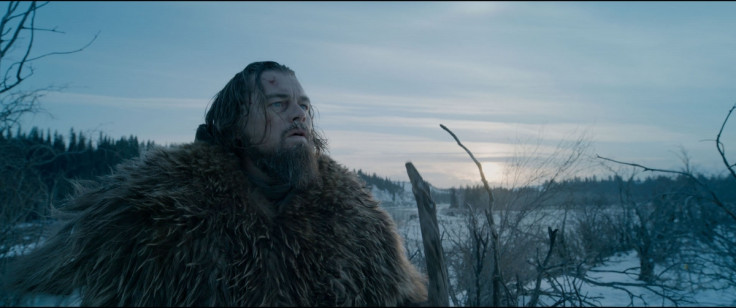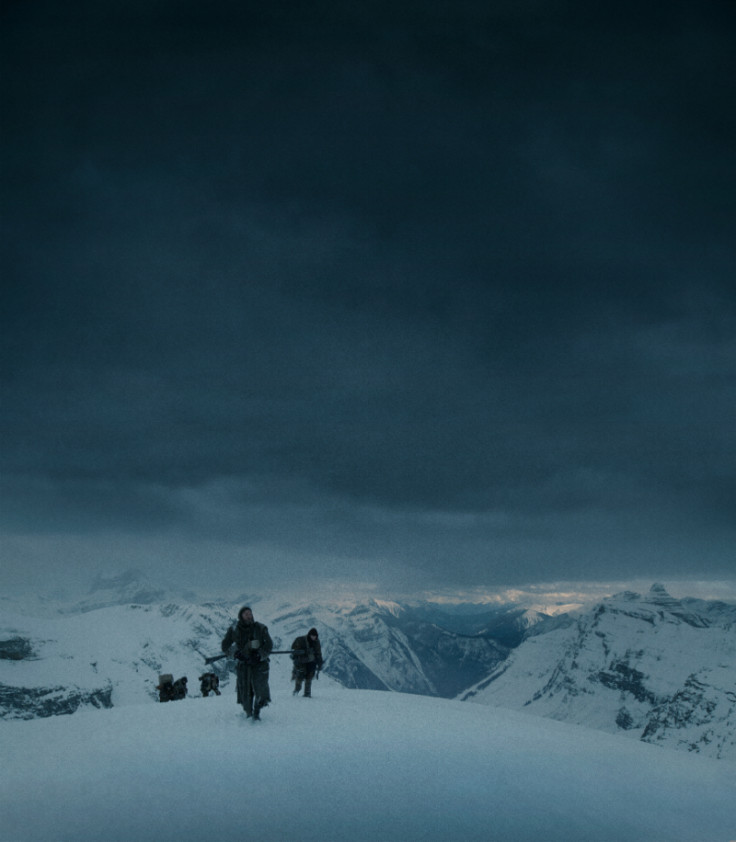The Revenant review: Leonardo DiCaprio and Alejandro G Inarritu offer up a full-blown sensory experience

Alejandro González Iñárritu and Leonardo DiCaprio take film-making to the extreme in this exhaustingly brutal yet beautiful 19th-century thriller, that tells the extraordinary true story of fur trapper and wilderness explorer Hugh Glass.
The film begins as Glass (DiCaprio) and the rest of his team are gearing up to return to their base after a successful expedition obtaining pelts. During their preparation, however, they are ambushed by Native Americans who attempt to murder them all to steal the valuable furs.
Only a handful of men get away, one being experienced frontiersman Glass, who advises the survivors to ditch the salvaged pelts in the mountains and return for them when they have more men and supplies. But the idea doesn't sit well with cynical John Fitzgerald (Tom Hardy) and tensions between the pair soon rear their ugly, half-scalped, heads.
Compassionate Captain Henry (Domhnall Gleeson) decides to carry out Glass' idea and the troupe set out on foot back to camp. Later, while his fellow fur trappers are resting one evening, Glass is savagely attacked by a bear and sustains such terrible injuries that Fitzgerald manages to trick Henry and convince shipmate Bridger (Will Poulter) that they should leave him for dead and carry on. But against all odds, Glass doesn't quite meet his end and sets out on a imaginable journey of survival and vengeance.

Usually, the production process of a film remains known to only those who were a part of it, but there's no denying that The Revenant's pure ambition warrants everyone being told about its journey to the big screen. Filmed over nine months in the wilds of Alberta and Argentina and filmed entirely in natural light, Academy Award-winning cinematographer Emmanuel Lubezki is able to capture colours that are so rarely seen on the big screen, it's truly a wonder to see here. You're able to witness the brilliant white of the snow suddenly become a stunning dusky blue, and then finally pitch black, emphasising not only the celestial beauty of such a landscape but the danger and vulnerability that is bestowed on its inhabitants too.
And it's not just the locations that exhibit the film-makers' skill. The opening scene in particular is a revelation. As the natives attack, Lubezski's camera hones in on several individuals, manoeuvring through the trees to capture the chaos. Trailing, it follows one character until they are killed and then unrelentingly moves on to another before the same thing occurs. It swings high and low, ensuring that it captures the Sioux on horses and in the trees, as well as the Americans being drowned in the Missouri River. It's an astounding piece of action choreography but its artistry never detracts from the horror. More accurately, it's ensuring that you can't get away from any of it.

Similarly exhilarating scenes are placed strategically throughout the film to keep up the momentum and are carried out with a somewhat slow-motion type technique, forcing you to take in every detail. The bear attack in particular makes your stomach churn as the grizzly hurls a helpless DiCaprio towards the screen and slashes him savagely with its claws.
Our lead lays facing the audience for almost all of the ordeal and his blood-soaked expressions are as frightening as the bright red jaws of the grunting monster on top of him. The heaven-like qualities of the backdrop dissipate behind the hellish events on screen, shaking you out of your dreamy-like state and whipping you back into the story and the mauling is just the beginning.
The entire film's treatment of the audience is one of visceral involvement, but not in such a way that it resorts to breaking the fourth wall. It comes in glimmers, such as when the camera looms so close to the end of DiCaprio's nose that you can see the pores in his skin and with each of his laboured breaths the cinema screen fogs or on occasion, the dazzling sun creates a glare on the lens.
You sympathise with the characters as if you're there, but simultaneously, you feel guilty that you're merely just an observer. It's visionary film-making: Iñárritu pushed the boundaries with his previous, quadruple-Oscar-winning film Birdman; he goes even further this time, and is likely to continue doing so in the future.
Unlike the camera's, DiCaprio's performance isn't a showy affair. In fact, he barely speaks throughout. Though when he does utter a line or two, each one is sure to hold meaning... "I ain't afraid to die any more, I've done it already." His actions and physicality, however, speak in consistent volumes.
He never says that he wants to enact vengeance on Fitzgerald, but you know it. Told through his sheer determination to find his way back home and his angry scraping sessions, that leave the words "Fitzgerald killed my son" on any surface he can find and the hatred in his eyes. He never utters a word about how much pain he is in thanks to his truly horrific injuries, but he shows it, as he drags his limp body through the dirt and snow with gritted teeth just to rummage for bits of leftover marrow inside animal carcasses to eat.
Unfortunately the Oscar buzz surrounding this film harms it in only one way: you never forget it's DiCaprio that you're observing. When you see him tuck into a raw bison liver through desperate hunger, you tend to admire his efforts as an actor rather than Glass' the character and the feeling washes over you more than just once while viewing. Nevertheless, it doesn't make what you're watching any less harrowing, particularly because you know there's truth in it.
It's easier for his equally brilliant co-stars Hardy, Poulter and Gleeson to blend into their characters, even if Hardy does slip into his Bane accent once or twice. That aside, and albeit a bold statement to make, this is the film that DiCaprio has been waiting for and one that is sure to finally win him that elusive Oscar. Without any kind of negativity towards his older pictures implied, he's free from the tropes of overly complicated plots (Inception), tragic romance (Titanic) and dark comedies (The Wolf Of Wall Street) and in doing so, is able to offer up his most realistic and emotive performance yet which will leave you in awe of both him and the incredible real-life survivor he is depicting.
© Copyright IBTimes 2025. All rights reserved.






















